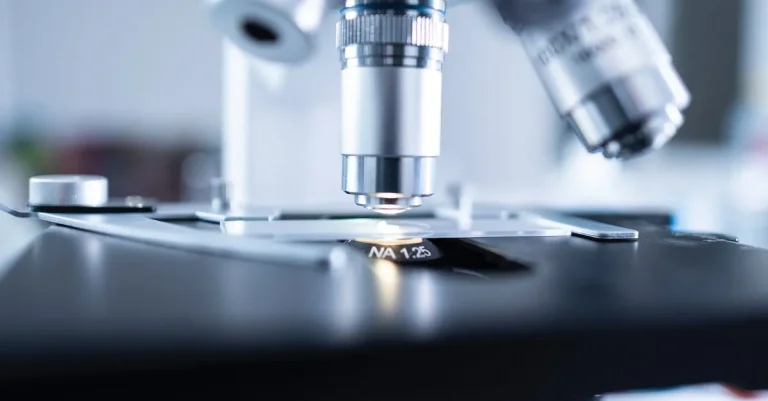What Science Courses Are Taught In 12Th Grade? An In-Depth Look
As a high school senior, you’re so close to graduation! This final year is crucial for cementing your science knowledge and skills before college. Choosing the right science curriculum can also boost your applications if you plan to major in a science field.
If you’re short on time, here’s a quick answer: Most 12th graders take at least one core science like physics or anatomy. Common electives include forensic science, biotechnology, engineering, computer science, and psychology.
In this comprehensive guide, we’ll break down the typical science courses and concepts covered in 12th grade. We’ll look at core classes like physics, anatomy, and AP/IB sciences, plus electives like forensics and engineering.
We’ll also discuss how to select classes that align with your college major and career goals.
Typical 12th Grade Core Science Courses
Physics
Physics is a fundamental science course that is often taught in 12th grade. It focuses on the study of matter and energy and how they interact with each other. Students in this course will learn about concepts such as motion, forces, electricity, magnetism, and waves.
They will also explore the laws and principles that govern the behavior of the universe. Physics is a challenging but rewarding subject that encourages critical thinking and problem-solving skills.
Anatomy and Physiology
Anatomy and Physiology is another common science course offered to 12th-grade students. This course delves into the structure and function of the human body. Students will learn about the various systems of the body, such as the skeletal, muscular, circulatory, respiratory, and nervous systems.
They will explore how these systems work together to maintain homeostasis and enable the body to function properly. Anatomy and Physiology provide a comprehensive understanding of the human body and are particularly beneficial for students interested in pursuing careers in healthcare or biological sciences.
AP/IB Sciences
Advanced Placement (AP) and International Baccalaureate (IB) science courses are also offered to 12th-grade students who wish to pursue more advanced studies in a specific scientific discipline. These courses, such as AP Biology, AP Chemistry, or IB Physics, go beyond the content covered in regular science courses and provide students with a more rigorous and in-depth understanding of the subject matter.
Students who successfully complete these courses may have the opportunity to earn college credit or advanced standing at universities. These courses are known for their challenging coursework, extensive laboratory work, and preparation for college-level science studies.
Common 12th Grade Science Electives
Forensic Science
In 12th grade, students have the opportunity to take courses in forensic science. This field combines elements from biology, chemistry, and criminal justice to analyze and solve crimes. Students learn about crime scene investigation, fingerprint analysis, DNA profiling, and other techniques used in forensic science.
They may also have the chance to visit crime labs or participate in mock crime scene investigations to apply their knowledge in a practical setting.
Engineering
Another popular science elective for 12th graders is engineering. This course allows students to explore various engineering disciplines such as civil, mechanical, electrical, or aerospace engineering.
They learn about the design process, problem-solving skills, and how to apply scientific principles to create innovative solutions. Students may work on projects like building bridges, designing circuits, or constructing small-scale models of airplanes.
This hands-on experience helps them develop critical thinking and teamwork skills necessary for a career in engineering.
Computer Science
In today’s digital age, computer science has become an essential field of study. 12th grade students can choose computer science as an elective to learn programming languages, algorithms, and software development.
They may also explore topics like artificial intelligence, cybersecurity, or data analysis. This course equips students with the skills needed to pursue careers in technology or to further their studies in computer science-related fields.
Psychology
Psychology is a fascinating subject that explores the human mind and behavior. In 12th grade, students can take a psychology course to gain a deeper understanding of topics such as cognitive processes, personality theories, or abnormal psychology.
They may conduct experiments, analyze case studies, and learn about various psychological disorders. This elective provides valuable insights into human behavior and can be beneficial for those interested in pursuing careers in counseling, therapy, or research.
Biotechnology
Biotechnology is an interdisciplinary field that combines biology, chemistry, and technology to develop innovative solutions in areas such as medicine, agriculture, or environmental science. In 12th grade, students can opt for a biotechnology course to learn about genetic engineering, bioinformatics, or pharmaceutical research.
They may have the opportunity to conduct experiments in a laboratory setting, analyze DNA sequences, or explore the ethical implications of biotechnology. This elective paves the way for future careers in biotechnology research, pharmaceuticals, or healthcare.
Key Science Concepts Covered in 12th Grade
Physics Concepts
In 12th grade, students will delve deeper into various physics concepts. They will explore topics such as electromagnetism, quantum mechanics, thermodynamics, and relativity. These concepts build upon the foundation laid in earlier years and provide a more advanced understanding of the fundamental laws that govern the universe.
Students will learn about the relationship between electric and magnetic fields, how particles behave at the quantum level, the principles of heat and energy transfer, and the concept of space-time.
Anatomy and Physiology Concepts
Another important area of study in 12th-grade science courses is anatomy and physiology. Students will learn about the structure and function of the human body, including its various organ systems. They will explore topics such as the cardiovascular system, respiratory system, digestive system, and nervous system.
Through hands-on activities, dissections, and laboratory experiments, students will gain a deep understanding of how the body works and how different systems interact with each other.
AP Science Review
For students taking Advanced Placement (AP) science courses in 12th grade, a significant portion of their time will be dedicated to reviewing and preparing for the AP exams. These exams cover a wide range of science subjects, including biology, chemistry, physics, and environmental science.
Students will review key concepts, practice problem-solving skills, and engage in practice exams to ensure they are well-prepared for the rigorous exams. This review period allows students to solidify their understanding of the material and demonstrate their knowledge on the AP exams, which can potentially earn them college credit.
For more in-depth information on the specific concepts covered in 12th-grade science courses, you can visit reputable educational websites such as Khan Academy or College Board. These resources provide comprehensive materials and practice exercises to enhance students’ understanding and proficiency in science subjects.
Preparing for College Admissions as a Science Major
As a student interested in pursuing a science major in college, it is important to start preparing early. College admissions committees often look for a strong foundation in science subjects when considering applicants for science programs.
Here are some key steps to take in order to enhance your chances of being accepted into a top-tier science program.
Taking upper level science electives
One way to demonstrate your commitment to the field of science is by taking upper level science electives in high school. These courses delve deeper into specific areas of science and provide a more comprehensive understanding of the subject matter.
By taking these challenging courses, you not only show your dedication to learning, but also develop the necessary skills and knowledge that will be valuable in college.
Scoring well on SAT Subject Tests
In addition to taking advanced science courses, scoring well on SAT Subject Tests in science can bolster your college application. These tests assess your knowledge and understanding of specific science subjects, such as biology, chemistry, and physics.
A strong performance on these tests can demonstrate your proficiency in the field and give college admissions officers confidence in your abilities.
Participating in science extracurriculars
Participating in science-related extracurricular activities can also make you stand out as a science major applicant. Joining science clubs, participating in science Olympiads or competitions, or engaging in research projects can showcase your passion and commitment to the field.
These activities not only provide hands-on experience but also demonstrate your ability to apply scientific concepts to real-world situations.
Completing a science fair project
Completing a science fair project is another excellent way to demonstrate your enthusiasm for science. It allows you to delve into a specific area of interest, conduct experiments, analyze data, and present your findings.
A well-executed science fair project can showcase your research skills, critical thinking abilities, and passion for scientific inquiry.
By taking these steps, you can enhance your college application and increase your chances of being accepted into a top-tier science program. Remember, it’s not only about getting good grades but also about showing your dedication, passion, and ability to excel in the field of science.
Choosing Electives for Specific Science Majors
In 12th grade, students have the opportunity to choose electives that align with their interests and potential future science majors. These electives allow students to delve deeper into specific areas of science and gain a more comprehensive understanding of their chosen field.
Here are some of the science courses commonly taken by 12th graders pursuing different majors:
Engineering
For students interested in pursuing a career in engineering, there are a few key science courses that can be beneficial. Physics is a fundamental course for aspiring engineers, as it provides a solid foundation in principles such as mechanics, electricity, and magnetism.
Additionally, courses in calculus and computer science can help develop the problem-solving and analytical skills that are essential in the field of engineering.
Biology
Students interested in biology can choose from a range of electives that focus on different aspects of the subject. Advanced courses in genetics, microbiology, and ecology can provide a deeper understanding of the complexities of living organisms.
These courses often involve hands-on laboratory work, allowing students to apply their theoretical knowledge to real-life experiments.
Chemistry
Chemistry is a popular choice for students considering a major in chemical engineering or other chemistry-related fields. In 12th grade, students can take advanced courses in organic chemistry, inorganic chemistry, and physical chemistry.
These courses explore the properties of different substances, chemical reactions, and the principles that govern them.
Computer Science
In the digital age, computer science has become an increasingly popular field of study. Students interested in pursuing a major in computer science can take electives such as programming, algorithms, and data structures.
These courses provide a solid foundation in coding languages and problem-solving techniques, which are essential for a career in computer science.
Neuroscience
For students fascinated by the complexities of the human brain, neuroscience is a compelling field of study. In 12th grade, students can choose electives that explore topics such as cognitive neuroscience, neurobiology, and neurochemistry.
These courses delve into the intricacies of the nervous system and provide insights into how the brain functions and influences behavior.
It is important for students to research the specific requirements of their desired science major and consult with their guidance counselors to ensure they are choosing the most appropriate electives.
By selecting courses that align with their interests and potential future career paths, students can maximize their learning experiences and set themselves up for success in their chosen science major.
Conclusion
As a high school senior, you have flexibility in your science curriculum to explore electives tailored to your post-grad goals. Use this year to master advanced physics and anatomy concepts that will propel you into college-level science classes.
Work closely with your counselor to choose science electives that align with your prospective college major. By graduating with a robust science education, you’ll demonstrate to colleges that you’re ready to take on a demanding STEM program.







